Anthropology Quotes
Quotes tagged as "anthropology"
Showing 1-30 of 361
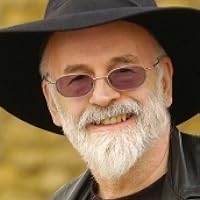
“The anthropologists got it wrong when they named our species Homo sapiens ('wise man'). In any case it's an arrogant and bigheaded thing to say, wisdom being one of our least evident features. In reality, we are Pan narrans, the storytelling chimpanzee.”
― The Globe
― The Globe

“Freuchen tells how one day, after coming home hungry from an unsuccessful walrus-hunting expedition, he found one of the successful hunters dropping off several hundred pounds of meat. He thanked him profusely. The man objected indignantly:
... The refusal to calculate credits and debits can be found throughout the anthropological literature on egalitarian hunting societies. Rather than seeing himself as human because he could make economic calculations, the hunter insisted that being truly human meant refusing to make such calculations, refusing to measure or remember who had given what to whom, for the precise reason that doing so would inevitably create a world where we began "comparing power with power, measuring, calculating" and reducing each other to slaves or dogs through debt. It's not that he, like untold millions of similar egalitarian spirits throughout history, was unaware that humans have a propensity to calculate. If he wasn't aware of it, he could not have said what he did. Of course we have a propensity to calculate. We have all sorts of propensities. In any real-life situation, we have propensities that drive us in several different contradictory directions simultaneously. No one is more real than any other. The real question is which we take as the foundation of our humanity, and therefore, make the basis of our civilization.”
― Debt: The First 5,000 Years
"Up in our country we are human!" said the hunter. "And since we are human we help each other. We don't like to hear anybody say thanks for that. What I get today you may get tomorrow. Up here we say that by gifts one makes slaves and by whips one makes dogs.
... The refusal to calculate credits and debits can be found throughout the anthropological literature on egalitarian hunting societies. Rather than seeing himself as human because he could make economic calculations, the hunter insisted that being truly human meant refusing to make such calculations, refusing to measure or remember who had given what to whom, for the precise reason that doing so would inevitably create a world where we began "comparing power with power, measuring, calculating" and reducing each other to slaves or dogs through debt. It's not that he, like untold millions of similar egalitarian spirits throughout history, was unaware that humans have a propensity to calculate. If he wasn't aware of it, he could not have said what he did. Of course we have a propensity to calculate. We have all sorts of propensities. In any real-life situation, we have propensities that drive us in several different contradictory directions simultaneously. No one is more real than any other. The real question is which we take as the foundation of our humanity, and therefore, make the basis of our civilization.”
― Debt: The First 5,000 Years

“One of history’s fews iron laws is that luxuries tend to become necessities and to spawn new obligations. Once people get used to a certain luxury, they take it for granted. Then they begin to count on it. Finally they reach a point where they can’t live without it. Over the few decades, we have invented countless time saving machines that are supposed to make like more relaxed - washing machines, vacuum cleaners, dishwashers, telephones, mobile phones, computers, email. We thought we were saving time; instead we revved up the treadmill of life to ten times its former speed and made our days more anxious and agitated.”
― Sapiens: A Brief History of Humankind
― Sapiens: A Brief History of Humankind

“I used to say to my classes that the ways to get insight are: to study infants; to study animals; to study primitive people; to be psychoanalyzed; to have a religious conversion and get over it; to have a psychotic episode and get over it; or to have a love affair with an old Russian. And I stopped saying that when a little dancer in the front row put up her hand and said, 'Does he have to be old?”
―
―
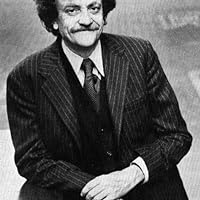
“I think about my education sometimes. I went to the University of Chicago for awhile after the Second World War. I was a student in the Department of Anthropology. At that time they were teaching that there was absolutely no difference between anybody.
They may be teaching that still.
Another thing they taught was that no one was ridiculous or bad or disgusting. Shortly before my father died, he said to me, ‘You know – you never wrote a story with a villain in it.’
I told him that was one of the things I learned in college after the war.”
― Slaughterhouse-Five
They may be teaching that still.
Another thing they taught was that no one was ridiculous or bad or disgusting. Shortly before my father died, he said to me, ‘You know – you never wrote a story with a villain in it.’
I told him that was one of the things I learned in college after the war.”
― Slaughterhouse-Five

“If two people stare at each other for more than a few seconds, it means they are about to either make love or fight. Something similar might be said about human societies. If two nearby societies are in contact for any length of time, they will either trade or fight. The first is non-zero-sum social integration, and the second ultimately brings it.”
―
―

“I wondered why she craved this knowledge and found myself remembering that she was, after all, an anthropologist.”
― The Historian
― The Historian

“I chose cultural anthropology, since it offered the greatest opportunity to write high-minded balderdash.”
― Palm Sunday: An Autobiographical Collage
― Palm Sunday: An Autobiographical Collage

“Studies [on the origin of fairy-stories] are, however, scientific (at least in intent); they are the pursuit of folklorists or anthropologists: that is of people using the stories not as they were meant to be used, but as a quarry from which to dig evidence, or information, about matters in which they are interested.
...with regard to fairy stories, I feel that it is more interesting, and also in its way more difficult, to consider what they are, what they have become for us, and what values the long alchemic processes of time have produced in them. In Dasent's words I would say: 'We must be satisfied with the soup that is set before us, and not desire to see the bones of the ox out of which it has been boiled.'
Such stories have now a mythical or total (unanalysable) effect, an effect quite independent of the findings of Comparative Folk-lore, and one which it cannot spoil or explain; they open a door on Other Time, and if we pass through, though only for a moment, we stand outside our own time, outside Time itself, maybe.”
― Tolkien On Fairy-stories
...with regard to fairy stories, I feel that it is more interesting, and also in its way more difficult, to consider what they are, what they have become for us, and what values the long alchemic processes of time have produced in them. In Dasent's words I would say: 'We must be satisfied with the soup that is set before us, and not desire to see the bones of the ox out of which it has been boiled.'
Such stories have now a mythical or total (unanalysable) effect, an effect quite independent of the findings of Comparative Folk-lore, and one which it cannot spoil or explain; they open a door on Other Time, and if we pass through, though only for a moment, we stand outside our own time, outside Time itself, maybe.”
― Tolkien On Fairy-stories
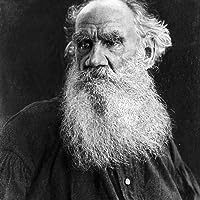
“I wanted movement and not a calm course of existence. I wanted excitement and the chance to sacrifice myself for my love. I felt it in myself a superabundance of energy which found no outlet in our quiet life.”
― Семейное счастие
― Семейное счастие

“Cultural analysis is intrinsically incomplete. And, worse than that, the more deeply it goes the less complete it is.”
―
―

“Marriage," "mating," and "love" are socially constructed phenomena that have little or no transferable meaning outside any given culture. The examples we've noted of rampant ritualized group sex, mate-swapping, unrestrained casual affairs, and socially sanctioned sequential sex were all reported in cultures that anthropologists insist are monogamous simply because they've determined that something they call "marriage" takes place there. No wonder so many insist that marriage, monogamy, and the nuclear family are human universals. With such all-encompassing interpretations of the concepts, even the prairie vole, who "sleeps with anyone," would qualify.”
― Sex at Dawn: The Prehistoric Origins of Modern Sexuality
― Sex at Dawn: The Prehistoric Origins of Modern Sexuality
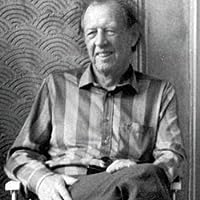
“[T]here are in fact no masses, but only ways of seeing people as masses.”
― Resources of Hope: Culture, Democracy, Socialism
― Resources of Hope: Culture, Democracy, Socialism

“One-third to one-half of humanity are said to go to bed hungry every night. In the Old Stone Age the fraction must have been much smaller. This is the era of hunger unprecedented. Now, in the time of the greatest technical power, is starvation an institution. Reverse another venerable formula: the amount of hunger increases relatively and absolutely with the evolution of culture.”
― Stone Age Economics
― Stone Age Economics

“The single most important human insight to be gained from this way of comparing societies is perhaps the realization that everything could have been different in our own society – that the way we live is only one among innumerable ways of life which humans have adopted. If we glance sideways and backwards, we will quickly discover that modern society, with its many possibilities and seducing offers, its dizzying complexity and its impressive technological advances, is a way of life which has not been tried out for long. Perhaps, psychologically speaking, we have just left the cave: in terms of the history of our species, we have but spent a moment in modern societies. (..) Anthropology may not provide the answer to the question of the meaning of life, but at least it can tell us that there are many ways in which to make a life meaningful.”
― Small Places, Large Issues: An Introduction to Social and Cultural Anthropology
― Small Places, Large Issues: An Introduction to Social and Cultural Anthropology

“It may be in the cultural particularities of people — in their oddities — that some of the most instructive revelations of what it is to be generically human are to be found.”
―
―

“At night the cries of cats making love or fighting, their caterwauling in the dark, told us that the world was pure emotion, flung back and forth among its creatures, the agony of the one-eyed Siamese no different from that of the Lisbon girls, and even the trees plunged in feeling.”
― The Virgin Suicides
― The Virgin Suicides

“The world's most primitive people have few possessions, but they are not poor. Poverty is not a certain small amount of goods, nor is it just a relation between means and ends; above all it is a relation between people. Poverty is a social status. As such it is the invention of civilization.”
― Stone Age Economics
― Stone Age Economics
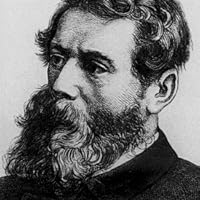
“The task of the modern era was the realization and humanization of God – the transformation and dissolution of theology into anthropology.”
― Principles of the Philosophy of the Future
― Principles of the Philosophy of the Future

“Perhaps this is what a state actually is: a combination of exceptional violence and the creation of a complex social machine, all ostensibly devoted to acts of care and devotion.
There is obviously a paradox here. Caring labour is in a way the very opposite of mechanical labour: it is about recognizing and understanding the unique qualities, needs and peculiarities of the cared-for – whether child, adult, animal or plant – in order to provide what they require to flourish. Caring labour is distinguished by its particularity. If those institutions we today refer to as ‘states’ really do have any common features, one must certainly be a tendency to displace this caring impulse on to abstractions; today this is usually ‘the nation’, however broadly or narrowly defined. Perhaps this is why it’s so easy for us to see ancient Egypt as a prototype for the modern state: here too, popular devotion was diverted on to grand abstractions, in this case the ruler and the elite dead. This process is what made it possible for the whole arrangement to be imagined, simultaneously, as a family and as a machine, in which everyone (except of course the king) was ultimately interchangeable. From the seasonal work of tomb-building to the daily servicing of the ruler’s body (recall again how the first royal inscriptions are found on combs and make-up palettes), most of human activity was directed upwards, either towards tending rulers (living and dead) or assisting them with their own task of feeding and caring for the gods.”
― The Dawn of Everything: A New History of Humanity
There is obviously a paradox here. Caring labour is in a way the very opposite of mechanical labour: it is about recognizing and understanding the unique qualities, needs and peculiarities of the cared-for – whether child, adult, animal or plant – in order to provide what they require to flourish. Caring labour is distinguished by its particularity. If those institutions we today refer to as ‘states’ really do have any common features, one must certainly be a tendency to displace this caring impulse on to abstractions; today this is usually ‘the nation’, however broadly or narrowly defined. Perhaps this is why it’s so easy for us to see ancient Egypt as a prototype for the modern state: here too, popular devotion was diverted on to grand abstractions, in this case the ruler and the elite dead. This process is what made it possible for the whole arrangement to be imagined, simultaneously, as a family and as a machine, in which everyone (except of course the king) was ultimately interchangeable. From the seasonal work of tomb-building to the daily servicing of the ruler’s body (recall again how the first royal inscriptions are found on combs and make-up palettes), most of human activity was directed upwards, either towards tending rulers (living and dead) or assisting them with their own task of feeding and caring for the gods.”
― The Dawn of Everything: A New History of Humanity
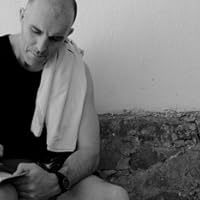
“The Tarahumara would party like this all night, then rouse themselves the next morning to face off in a running race that could last not two miles, not two hours, but two full days. According to the Mexican historian Francisco Almada, a Tarahumara champion once ran 435 miles, the equivalent of setting out for a jog in New York City and not stopping till you were closing in on Detroit.”
― Born to Run: A Hidden Tribe, Superathletes, and the Greatest Race the World Has Never Seen
― Born to Run: A Hidden Tribe, Superathletes, and the Greatest Race the World Has Never Seen

“Sometime I'm going to do an essay called 'The Virtues of Amateurism' for all of those people who wish they earned their living in the arts. The market kills more artistic people than anything else. It's a world of safety out there, for most people. They want safety, the magazines and manufacturers give them safety, give them homogeneity, give them the familiar and comfortable, don't challenge them.”
― The Bridges of Madison County
― The Bridges of Madison County
“It is...highly probable that from the very beginning, apart from death, the only ironclad rule of human experience has been the Law of Unintended Consequences.”
― Masters of the Planet: The Search for Our Human Origins
― Masters of the Planet: The Search for Our Human Origins

“The notion that someone who does not hold your views holds the reciprocal of them, or simply hasn't got any, has, whatever its comforts for those afraid reality is going to go away unless we believe very hard in it, not conduced to much in the way of clarity in the anti-relativist discussion, but merely to far too many people spending far too much time describing at length what it is they do not maintain than seems in any way profitable.”
―
―

“In years past, a person died, and eventually all those with memories of him or her also died, bringing about the complete erasure of that person's existence. Just as the human body returned to dust, mingling with atoms of the natural world, a person's existence would return to nothingness.
How very clean.
Now, as if in belated punishment for the invention of writing, any message once posted on the Internet was immortal. Words as numerous as the dust of the earth would linger forever in their millions and trillions and quadrillions and beyond.”
― Inheritance from Mother
How very clean.
Now, as if in belated punishment for the invention of writing, any message once posted on the Internet was immortal. Words as numerous as the dust of the earth would linger forever in their millions and trillions and quadrillions and beyond.”
― Inheritance from Mother
“In the United States both scholars and the general public have been conditioned to viewing human races as natural and separate divisions within the human species based on visible physical differences. With the vast expansion of scientific knowledge in this century, however, it has become clear that human populations are not unambiguous, clearly demarcated, biologically distinct groups. Evidence from the analysis of genetics (e.g. DNA) indicates that most physical variation, about 94%, lies within so-called racial groups. Conventional geographic "racial" groupings differ from one another only in about 6% of their genes. This means that there is greater variation within "racial" groups than between them. In neighboring populations there is much overlapping of genes and their phenotypic (physical) expressions. Throughout history whenever different groups have come into contact, they have interbred. The continued sharing of genetic materials has maintained all of humankind as a single species.”
―
―
“L'anthropologie n'est ni une religion à laquelle on adhère, ni une maladie qu'on contracte. Elle est d'un même mouvement un retour sur Soi et sur l'Autre considérés ensemble, mais l'habitude d'une relation à sens unique depuis cinq siècles n'autorise pas l'inversion de cette relation a produire les mêmes effets.”
― Introduction à l'ethnologie et à l'anthropologie
― Introduction à l'ethnologie et à l'anthropologie

“When asked why he wrote the book, Freed said:
In the 1980s, I joined the small group of anthropologists who were writing about the history of their subject. I believed that I could add some balance to American anthropological history, and that the best place to start was with museums—
where the story began. The more I delved into the archives, the more I was fascinated. I was hooked.”
― Anthropology Unmasked: Museums, Science, and Politics in New York City
In the 1980s, I joined the small group of anthropologists who were writing about the history of their subject. I believed that I could add some balance to American anthropological history, and that the best place to start was with museums—
where the story began. The more I delved into the archives, the more I was fascinated. I was hooked.”
― Anthropology Unmasked: Museums, Science, and Politics in New York City
All Quotes
|
My Quotes
|
Add A Quote
Browse By Tag
- Love Quotes 97k
- Life Quotes 75.5k
- Inspirational Quotes 72.5k
- Humor Quotes 43.5k
- Philosophy Quotes 29.5k
- Inspirational Quotes Quotes 27k
- God Quotes 26k
- Truth Quotes 23.5k
- Wisdom Quotes 23.5k
- Romance Quotes 23k
- Poetry Quotes 22k
- Death Quotes 20k
- Happiness Quotes 18.5k
- Life Lessons Quotes 18.5k
- Hope Quotes 18k
- Faith Quotes 18k
- Quotes Quotes 16.5k
- Inspiration Quotes 16.5k
- Spirituality Quotes 15k
- Religion Quotes 15k
- Motivational Quotes 15k
- Writing Quotes 14.5k
- Relationships Quotes 14.5k
- Life Quotes Quotes 14k
- Love Quotes Quotes 13.5k
- Success Quotes 13.5k
- Time Quotes 12.5k
- Motivation Quotes 12k
- Science Quotes 11.5k
- Knowledge Quotes 11k



